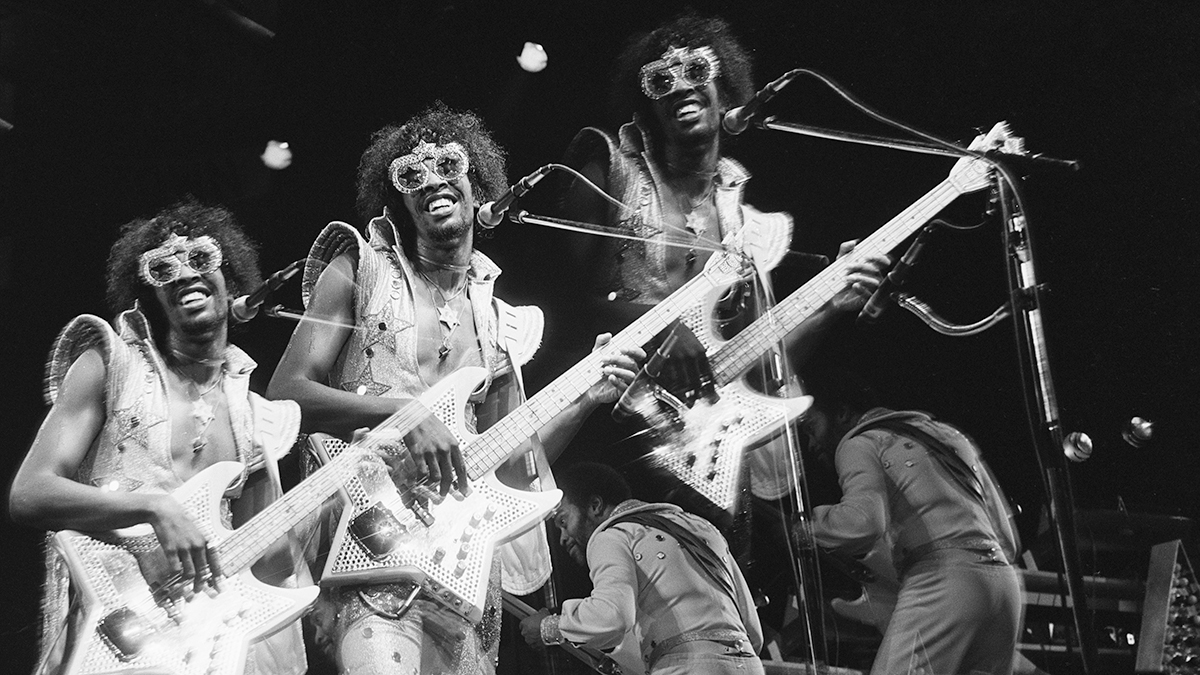Skid Row's Scotti Hill names 10 guitarists who shaped his sound
The hard-rock survivor on what links Jeff Beck, Jimi Hendrix and Eddie Van Halen – and why you should never underestimate the rhythm playing of Keith Richards
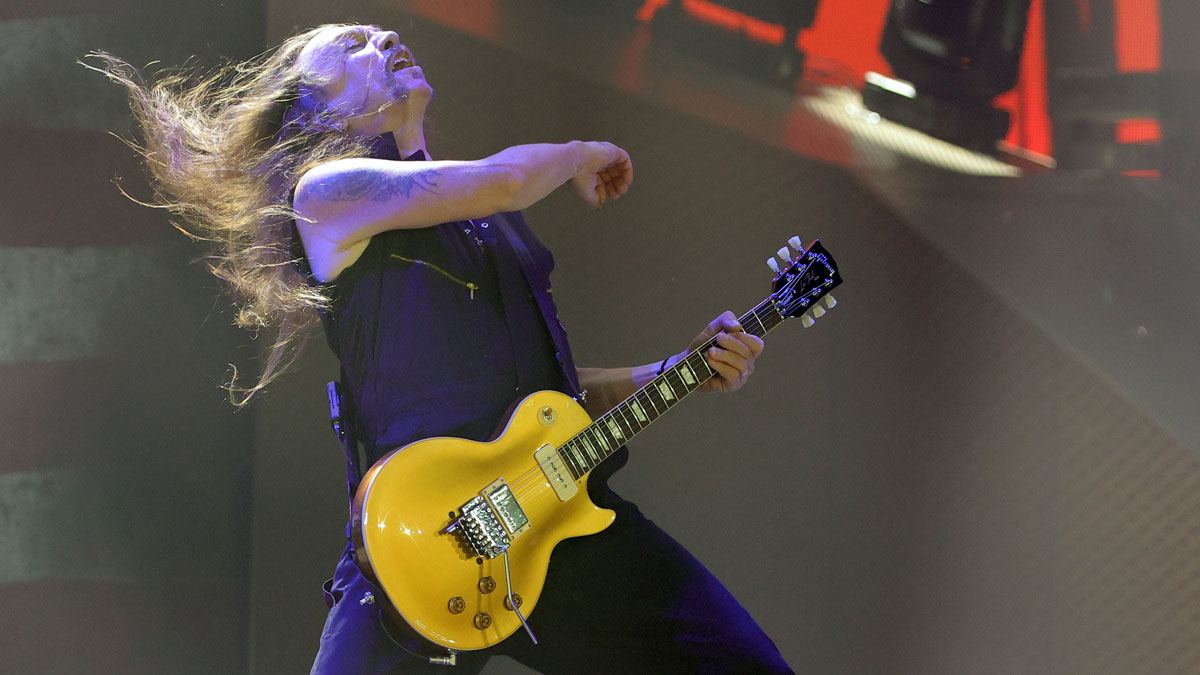
As a founding member of New Jersey hard-rock outfit Skid Row, Scotti Hill has been thrashing around the tri-state circuit for over 30 years. Perched alongside Dave 'Snake' Sabo, Hill has aided in the creation of more than a few nasty riffs to remember.
Skid Row had a bit of trouble finding its footing after its first two releases – Skid Row (1989) and Slave to the Grind (1991) – sent shivers down the collective spines of headbangers across the globe. But if you've written them off, hold fire, as Skid Row's latest release, The Gang's All Here, finds Hill and his cohorts firing back at detractors who proclaimed them dead.
Indeed, Skid Row's modern era, which finds them poised to reclaim their spot atop the glam-metal mountain, wouldn't be possible without Hill's tasteful yet aggressive approach to the guitar. Be it through his use of a single-cut, or various mad-scientist creations, Hill's approach to the guitar is two-fold: one part simplicity and one part bravado.
"My approach to the guitar is rooted in the music I love," recounts Hill. "I will always be rooted in my heroes; it's what makes up my DNA. I'm not up there trying to reinvent the wheel. But what's nice about Skid Row these days is that Snake and I have been playing together for so long, and that allows us to play off each other and accent our strengths. We each bring something to the table, and those things are part of what makes up the sound of Skid Row."
Rejuvenated by the breakneck success of The Gang's All Here, Hill dialed in with Guitar World to recollect the 10 guitarists who shaped his sound.
1. Jeff Beck
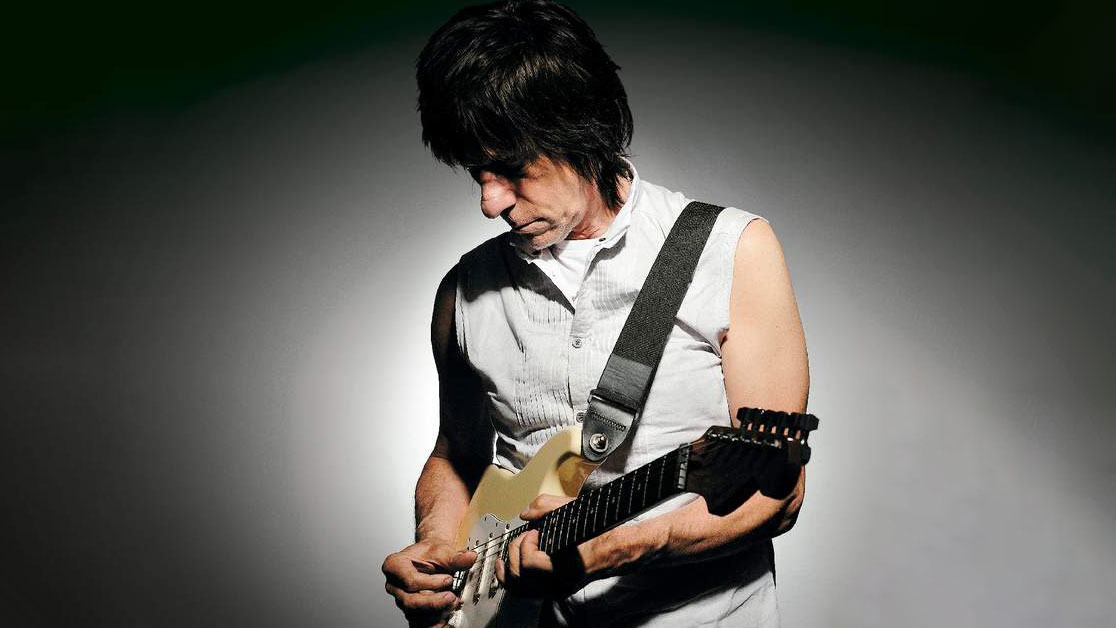
"For me, number one has to be Jeff Beck. You might think it's because he recently passed, but it's not. Honestly, I love Jeff Beck for all of the obvious reasons: his style, the way it developed over the years, and the way he was able to develop that into something truly special. Jeff was one of the most unique players in history, in my opinion, and that has to count for something.
"He started using a pick but wound up using his fingers, and he did so to perfection. And then he found the Stratocaster and wound up taking it to levels that nobody has ever taken. Jeff Beck will always be my number one across the board. In my eyes, nobody will ever be able to do what he did, not anyway or anyhow. No-one did what Jeff Beck did for the guitar aside from Jimi Hendrix and Eddie Van Halen. He was one of a kind, man."
Get The Pick Newsletter
All the latest guitar news, interviews, lessons, reviews, deals and more, direct to your inbox!
2. Jimi Hendrix
"I have to slide Hendrix in at number two for some of the same reasons as Jeff Beck. When Hendrix came on the scene, it was fucking mind-blowing. The electric guitar's state changed forever when those first chords rang out on Foxy Lady, man. Hendrix changed everything about guitar. Of course, other guys had their roles, but I don't think things would have happened the way they did without Hendrix.
"When people first heard Hendrix, it was like, 'Shit, what the hell is he doing?' It blew people away, and it took a minute for people to catch up, but it was explosive. Eddie Van Halen aside, I don't think most people ever caught up to Hendrix, but we keep trying, and we're slowly getting there. [Laughs]"
3. Eddie Van Halen
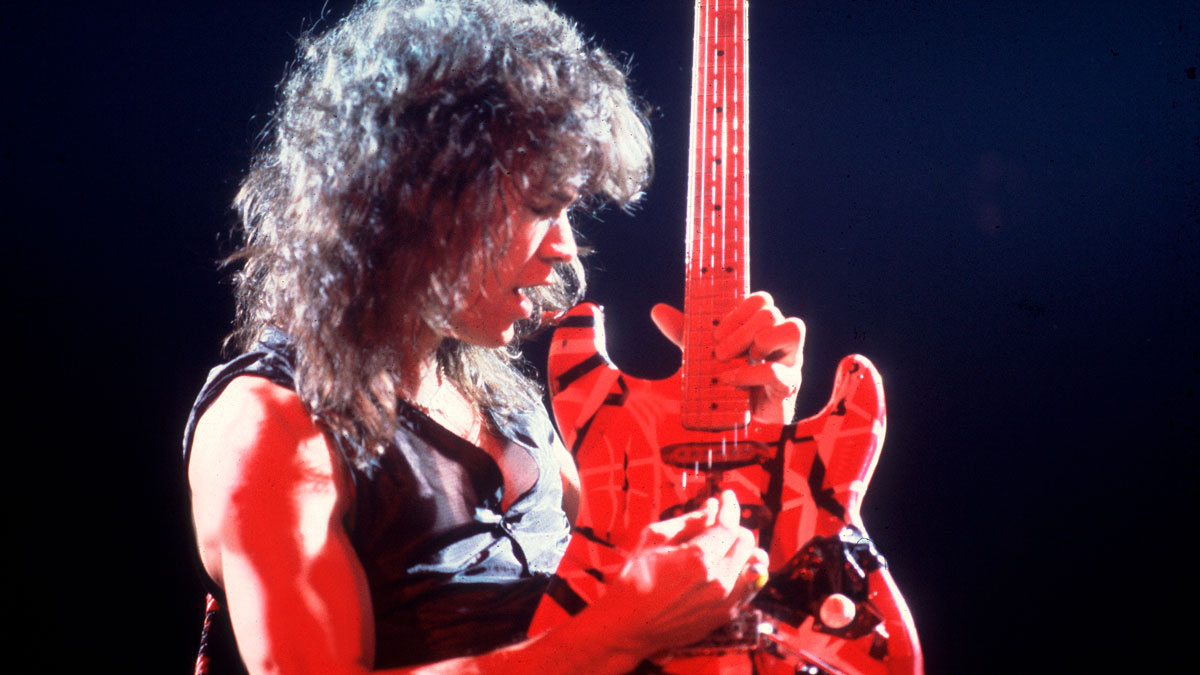
"It goes without saying that Eddie was a wizard the likes of which we've never seen. He did a lot of things that others had been working on, but he did them in a way that only he could do. And that tone, the 'brown sound' – you know it the second you hear it. I said before that most people never caught up to Hendrix, but Eddie Van Halen… yeah, he was one who I think did.
"They say that imitation is the greatest form of flattery, and I think that Eddie is a prime example of that. He ushered in a whole era without even trying to. Few can claim to have done that.
"There are many great players out there, but I don't think any of them could even try to do what he did. Eddie had these idiosyncrasies, from how he held the guitar to his chord voicings to how he fretted things; he was an animal completely unto himself."
4. Steve Lukather
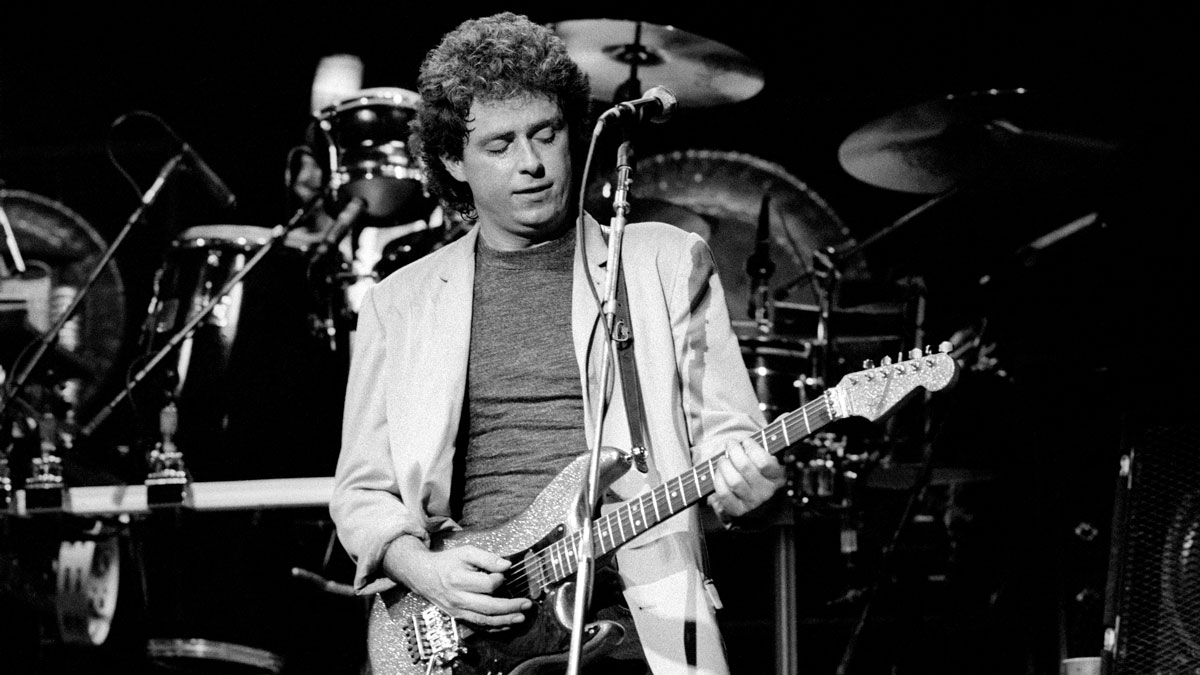
"I owe a lot to the amazing Steve Lukather. He's just an example of a guitarist who does everything great. Steve plays with such feeling and emotion, and that vibrato… God, it's over the top, isn't it? His control over his instrument is incredible, and it's a huge influence on how I personally approach the guitar.
"I will always put him up there with the greats for his vibrato and how he can take a melody and make it sound almost like a great singer. He puts these little magical Easter eggs within songs that are so much fun to look for, and his ability to craft a catchy solo is up there, too."
5. Neal Schon
"His playing is so rich and never has any filler, which is a rarity if you think about it. He's another one with a hell of a vibrato and an ear for melody like no other. Being able to hang in there with a vocalist like Steve Perry – that's impressive. Neal is great at injecting soul into music, which is easy to hear when you listen to Journey.
"And then you've got his early Santana stuff, which is just as expressive. That's something listeners need to go back to if they haven't heard it. Neal's playing always means something, like with the guitar breaks in Faithfully; they're incredible and something I've always tried to emulate."
6. Mark Hitt
"Back in the day, there was a guitar player on the circuit, back in the tri-state area, called Mark Hitt, and he was fucking amazing. He was known on the circuit and known by guitar players on the East Coast – Steve Stevens just cited him as an influence – and he was a huge influence on me. He was in a band called the Rat Race Choir, which was very popular back in the '80s around New York and Jersey.
"Mark was a guitar player's choice type of guy, and his band did a lot of progressive-type stuff akin to Jethro Tull, and they did Zeppelin covers, too. But this guy would just blow everybody's minds, so I'll always cite him as an influence.
"Some of my best and earliest memories include watching him in clubs when I was a kid, which is why I left school when I was 16 to pursue this thing. Watching Mark Hitt in those clubs became my education."
7. Stevie Ray Vaughan
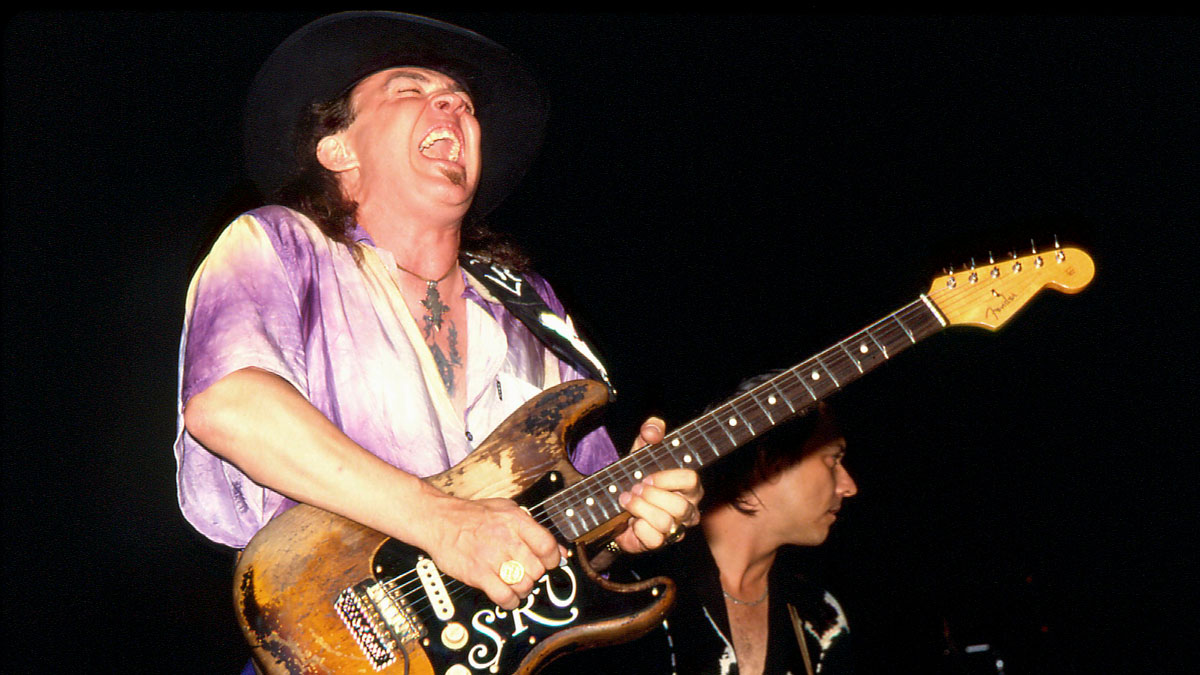
"Of course, I have to include the one and only Stevie Ray Vaughan. Stevie is another who will never be duplicated, but that doesn't stop people from trying. You can go on Instagram or YouTube, and sure as shit, everybody's doing Stevie Ray Vaughan covers, but it's not the same. The fact is that playing like Stevie is not something that you can learn to do; you're either born with it or you're not.
"His tone, feel, and everything about him made Stevie the ultimate modern blues guitar player. That's why people copy him so much, but it's annoying because I'm like, 'You're not him, man. Stop trying. Be yourself. Do your own thing.' Those people who do that will never be him; they're impersonators. That's it. He can never be duplicated."
8. Gary Moore
"This guy was just an absolutely scary guitar player. He was terrifying in every way imaginable, which was inspiring as hell to watch and listen to. Gary Moore was like watching a high-wire act teetering on the edge, but somehow, the guy remained in complete control. He was a master of feedback and parlayed such a level of aggressive guitar playing into total sorcery.
"On the flip-side, he was an emotional genius who was able to squeeze out these creamy, lush tones and obscenely beautiful melodies. Gary Moore was an incredible all-around player, but when I think of him, only one word immediately comes to mind: scary. So scary that he scared other guitar players right out of the room."
9. Ace Frehley
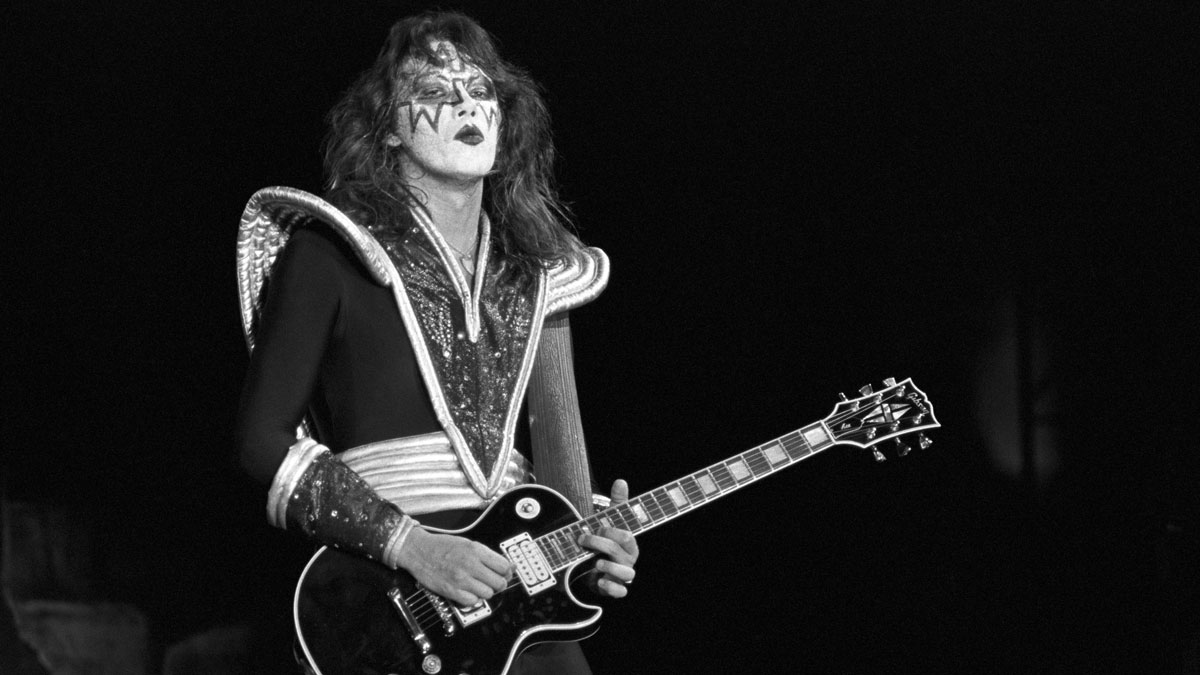
"When I talk about Ace, people need to understand that this guy was one of the earliest influences out of anybody for me. Before I was a guitar player, I was Ace Frehley for Halloween, so he was on my radar just because I thought he looked cool. [Laughs] And then, once I became a guitar player, Ace's influence and meaning became a whole different thing.
"Ace is one of those guys who is not technically great, but when you hear him play, you know it's Ace immediately. The second the guy bends a string, you know that it can't be anybody else but Ace Frehley.
"People talk about guitar players who have a sound that created a new sound, and that's Ace. Ace has been such a massive influence on so many guitar players; he's essential to the whole Gibson Les Paul/Marshall thing."
10. Keith Richards
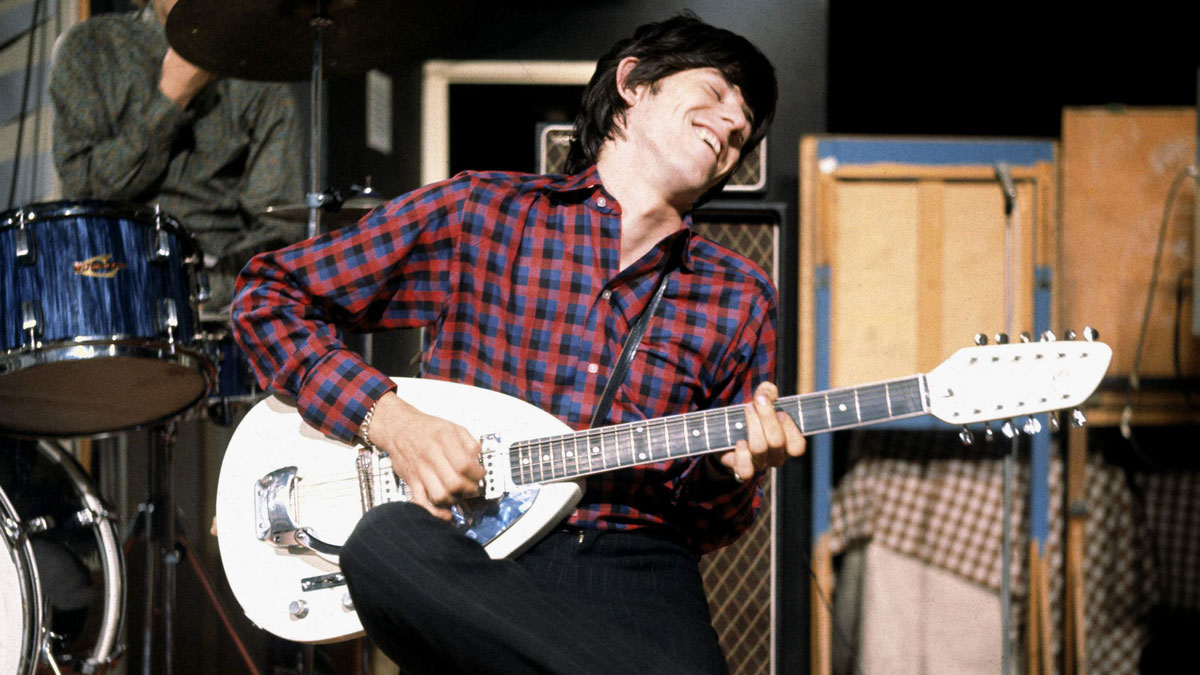
"Going in an entirely different direction than Ace, we've got Keith Richards. His use of open tunings still leaves people saying, 'How the hell did he do that? How does he get that sound?' The whole five-string, open-tuning thing totally changed how people approach riffing, you know? The sound of rock 'n' roll would not be the same without Keith Richards.
"Keith never overplays, and he always has an innate sense of what the song needs. He's selfless but such a fierce, intuitive rhythm player and a good soloist – don't discount that. Man... I just love listening to what he does, and it's even better to witness live.
"Some people like to say he's not that good because he doesn't shred, but I challenge you to try and do what Keith Richards does. Go ahead, try it. See how far you get."
- The Gang's All Here is out now via EarMUSIC.
Andrew Daly is an iced-coffee-addicted, oddball Telecaster-playing, alfredo pasta-loving journalist from Long Island, NY, who, in addition to being a contributing writer for Guitar World, scribes for Bass Player, Guitar Player, Guitarist, and MusicRadar. Andrew has interviewed favorites like Ace Frehley, Johnny Marr, Vito Bratta, Bruce Kulick, Joe Perry, Brad Whitford, Tom Morello, Rich Robinson, and Paul Stanley, while his all-time favorite (rhythm player), Keith Richards, continues to elude him.

